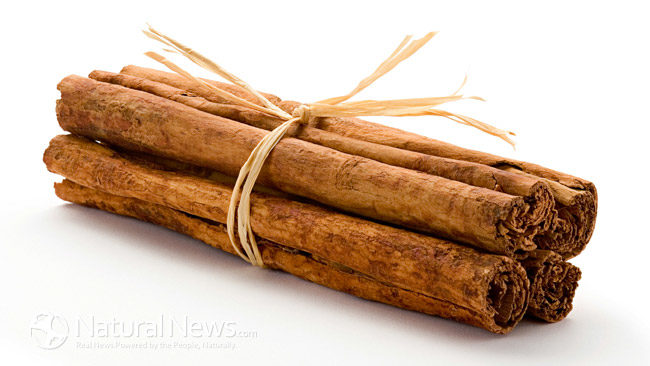There are so many herbs used in cooking, and used to wonderful effect, but these same herbs also have important antibacterial and antiviral properties. Just adding a few of the following herbs to your pantry will have it doubling as a medicine cabinet!
Antibacterial Herbs
1. Calendula: Calendula is an herb that is used to heal wounds as well as prevent infection. It has been proven to treat pink eye so anyone with small children might want to keep this on hand.
2. Cinnamon: Cinnamon helps aid in digestion and is known for its antibacterial properties. Add cinnamon to tea or to carrier oils and place directly on the skin.
3. Clove: Clove-infused oil is typically used to kill bad intestinal bacteria. You can also use it in cooking or put it right into a cup of tea.
4. Garlic: Garlic is one of the most popular antibacterial herbs. It is effective against several types of bacteria; In fact, it is more effective than penicillin. It is also easier on the body than antibiotics because it will not wipe out the ‘good’ bacteria in the body. So no probiotic backup is necessary.
5. Marshmallow Root : Many people swear by the pain relieving properties of marshmallow root. This herb also contains tannins that are effective against bacteria found in urinary tract infections.
Antiviral Herbs
1. Astragalus Root: Astragalus is an herb that will boost the immune system. It can be taken internally and will help your body ward off viruses. It should only be taken as a preventative, such as during flu season.
2. Cat’s Claw: Cat’s Claw is an antibacterial, an antifungal, and an antiviral. It will also boost your immune system.
3. Cranberry: Most people know that cranberry can ward off urinary tract infections, but cranberry is chock full of antioxidants which also helps prevent plaque formation on the teeth!
4. Ginger: Ginger is known for both is antibacterial and its antiviral properties.
5. Lemon Balm: Lemon balm can soothe an upset stomach, calm the nerves and it has a wealth of antiviral properties.
6. Licorice Root: Another antiviral, antibacterial herb is licorice. This one is great for gastric ulcers, because it kills H. pylori (which cause these ulcers) without upsetting the stomach.
7. Oregano: Finally, nearly all pantries have oregano, but did you know that besides being great for seasoning, oregano is tops for fighting off bacteria and viruses in the body? If you have any type of infection, oregano oil can speed healing.
How to Use these Herbs
After gathering these herbs, there are different ways to use them. Try teas, infusions, or oils:
Tea: Make an herbal tea with these herbs. Steep a tablespoon of herbs with a cup of hot water for ten minutes.
Infusion: Put a handful of dried herbs in a canning jar. Fill the jar to the fill line with boiling water. Secure the lid tightly and let it steep until the water has completely cooled. Strain out the antibacterial or antiviral herbs and enjoy.
Once you have boiled the herbs, you can drink them iced or hot or add the infusions to your bath for soaking wounds or sore muscles.
Infused oils: To create infused oils, you will need:
- Oven-proof dish
- Strainer
- 1 cup coconut oil
- 1/2 cup herbs
- Clean, dry jars
Heat your oven to 200 degrees and then turn it off.
Add your oil and herbs to the dish. Stir.
Put the dish in the oven and let set for three hours.
Remove and strain. Store your infused oil in a cool, dark place. Use as desired!
More From Author:
12 New Ways to Use Lemon Juice
Figs: 7 Reasons to Use This Natural Medicine for Your Health





